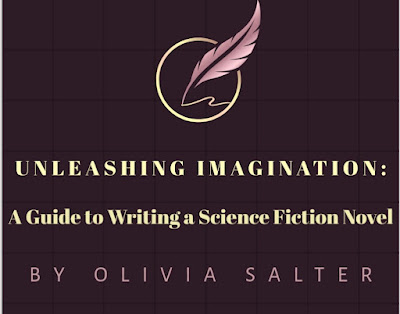Writer's Knowledge vs. Writers Imagination
by Olivia Salter
Michael Scott, the fictional character from the popular TV show "The Office," once famously said, "Imagination is more important than knowledge. Knowledge is limited to all we know and understand, while imagination embraces the entire world and all there ever will be to know and understand." This profound quote encapsulates the power and significance of imagination in comparison to knowledge.
The statement highlights a fundamental truth about the human experience—that while knowledge is crucial for understanding the world around us, it is ultimately limited by what we have learned and experienced. Knowledge is based on facts, evidence, and information that we have accumulated through education, observation, and exploration. It provides us with a foundation to navigate our lives, make informed decisions, and solve problems. However, knowledge alone can be restrictive, as it is confined to what has already been discovered or understood.
On the other hand, imagination is boundless and limitless. It allows us to explore possibilities beyond the constraints of the known world and envision a reality that has not yet come to fruition. Imagination enables us to dream, create, and innovate, pushing the boundaries of what is considered possible. It fosters creativity, ingenuity, and originality, opening doors to new ideas, inventions, and discoveries.
While knowledge may provide us with answers to existing questions, imagination propels us to ask new questions and seek innovative solutions. It sparks curiosity, drives progress, and inspires breakthroughs in various fields, from science and technology to art and literature. Imagination encourages us to think outside the box, challenge the status quo, and envision a future that is different from the present.
Moreover, imagination plays a crucial role in shaping our perception of the world and influencing our beliefs, values, and aspirations. It allows us to empathize with others, see things from different perspectives, and cultivate a sense of wonder and awe. Through imagination, we can connect with our innermost desires, fears, and emotions, forging deep and meaningful experiences that enrich our lives.
In conclusion, Michael Scott's insightful quote reminds us of the transformative power of imagination and its ability to transcend the limitations of knowledge. While knowledge is essential for understanding the world as it is, imagination empowers us to envision the world as it could be. By embracing our capacity to imagine, we can unlock new possibilities, inspire change, and shape a reality that is filled with endless potential and boundless creativity.



